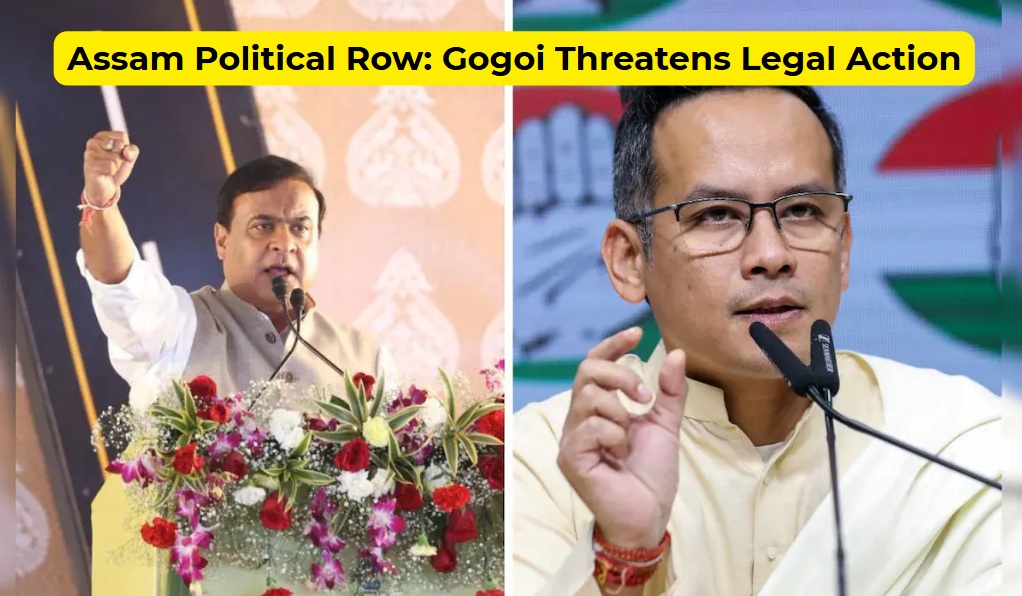In a significant diplomatic development, 21 US lawmakers have written a joint letter to President Donald Trump, urging him to repair strained trade relations with India. The bipartisan group, led by Congress members Deborah Ross and Ro Khanna, has warned that the heavy tariffs imposed on Indian goods are damaging the long-standing friendship between the world’s two largest democracies.
The letter, dated October 8, calls for a recalibration of US-India ties, stating that “punitive trade measures” have not only hurt India’s economy but also adversely impacted American businesses, exporters, and consumers.
Lawmakers Warn of Strategic Consequences
The lawmakers cautioned that the tariff dispute risks undermining Washington’s broader strategic interests in the Indo-Pacific region, where India remains a key partner in countering China’s growing influence. They emphasized that deteriorating ties with New Delhi could push India closer to China and Russia, a scenario that would “threaten regional stability and weaken America’s own geopolitical standing.”
“India is an indispensable partner in the Indo-Pacific, in global supply chains, and in upholding democratic norms,” the letter stated. “Trade tensions and protectionist measures only serve to alienate a critical ally.”
The lawmakers further reminded President Trump that India is an integral part of the Quad alliance — comprising the US, Japan, Australia, and India — which plays a central role in maintaining balance in the Asia-Pacific region. Any rupture in this partnership, they warned, would diminish US credibility in its own backyard.
Tariff War Backfires
President Trump, who often describes himself as a “deal-maker,” had imposed steep tariffs — reportedly as high as 50% — on several categories of Indian goods in August 2025, aiming to boost American manufacturing. However, economic experts and industry leaders in the US have criticized the move as “self-defeating,” arguing that it has raised costs for American companies and disrupted long-established supply chains.
According to sources, the Trump administration is now facing internal pressure from both the Congress and business lobbies to roll back the tariffs. The lawmakers’ letter described the tariff policy as “economically unwise and politically counterproductive,” claiming it had inflicted “avoidable damage” on both economies.
India Holds Its Ground
New Delhi, meanwhile, has taken a firm stand. During recent trade discussions, India reportedly conveyed that while it is open to dialogue, its foreign policy and energy security decisions are non-negotiable.
Officials familiar with the talks said India made it clear that “no external power can dictate whom India buys oil from or engages with,” emphasizing that its strategic and economic choices are guided solely by national interest.
India also pointed out that, as a developing country with complex energy needs, it must diversify its imports — including crude oil — based on affordability and availability. Sources indicated that India has gradually reduced its dependence on Russian oil while simultaneously increasing imports from other suppliers, a move that helped ease tensions during trade negotiations.
Breakthrough on the Horizon
Reports suggest that behind-the-scenes discussions between Indian Commerce Minister Piyush Goyal and US trade representatives have yielded positive results. Insiders claim that both sides have reached a preliminary agreement to slash tariffs by nearly half — from 25% to 12–15% — paving the way for a possible trade normalization announcement during the upcoming Quad summit.
President Trump and Prime Minister Narendra Modi are expected to meet during the event, where a joint declaration on trade cooperation could be unveiled. “This will mark India’s victory in the tariff war,” said a senior Indian official familiar with the talks.
A Political Tightrope for Trump
Analysts say the US President now finds himself in a political dilemma. Having built his reputation on “tough trade deals,” a policy reversal could be seen as a climbdown. However, the growing backlash from within his own political circles may force his hand.
“Trump is looking for a face-saving exit,” said a Washington-based policy expert. “By citing the recommendations of Congress and emphasizing America’s democratic decision-making process, he can justify any shift in policy as being ‘in the national interest.’”
Sources within the White House confirmed that Trump is “open to revisiting” some of his earlier trade decisions, though no formal statement has been issued yet.
A Larger Strategic Picture
Experts believe the tariff dispute is only a symptom of a larger strategic misalignment. With India emerging as one of the fastest-growing markets for US companies — especially in technology, defense, and energy sectors — there is mounting realization in Washington that a trade rift with New Delhi benefits only Beijing.
“The timing could not be worse,” noted a former US diplomat. “As America tries to rebuild alliances in Asia, alienating India — its most natural partner — is both short-sighted and dangerous.”
The lawmakers’ letter echoes this sentiment, urging the administration to prioritize collaboration over confrontation. “This is not the time for tariff wars,” the letter concluded. “It is the time to strengthen ties, balance global relations, and build a partnership that benefits both nations.”
India’s Quiet Victory
Observers credit Prime Minister Modi’s government for handling the dispute with restraint and strategic patience. Without public confrontation or rhetoric, India managed to secure a favorable position through quiet diplomacy.
“Modi’s approach was tactical — he neither bowed to US pressure nor escalated the matter publicly,” said a senior Indian trade analyst. “This allowed space for negotiation while keeping India’s dignity intact.”
As the two leaders prepare to meet later this month, expectations are high that the trade truce will mark the beginning of a renewed phase in US-India relations — one built not on tariffs and threats, but on mutual respect and shared interests.
#donaldtrump, #pmmodi, #dailydozes, #deborahross, #tariff, #ustariff, #unitedstate, #narendramodi, #rokhanna, #modidiplomacy, #trumptariffs, #washingtondc, #us, #indiaustrade, #indiausrelations, #tradewar, #uspakistan, #uschinatrade, #usfriendship, #indianeconomy, #foreignpolicy, #democracy,





